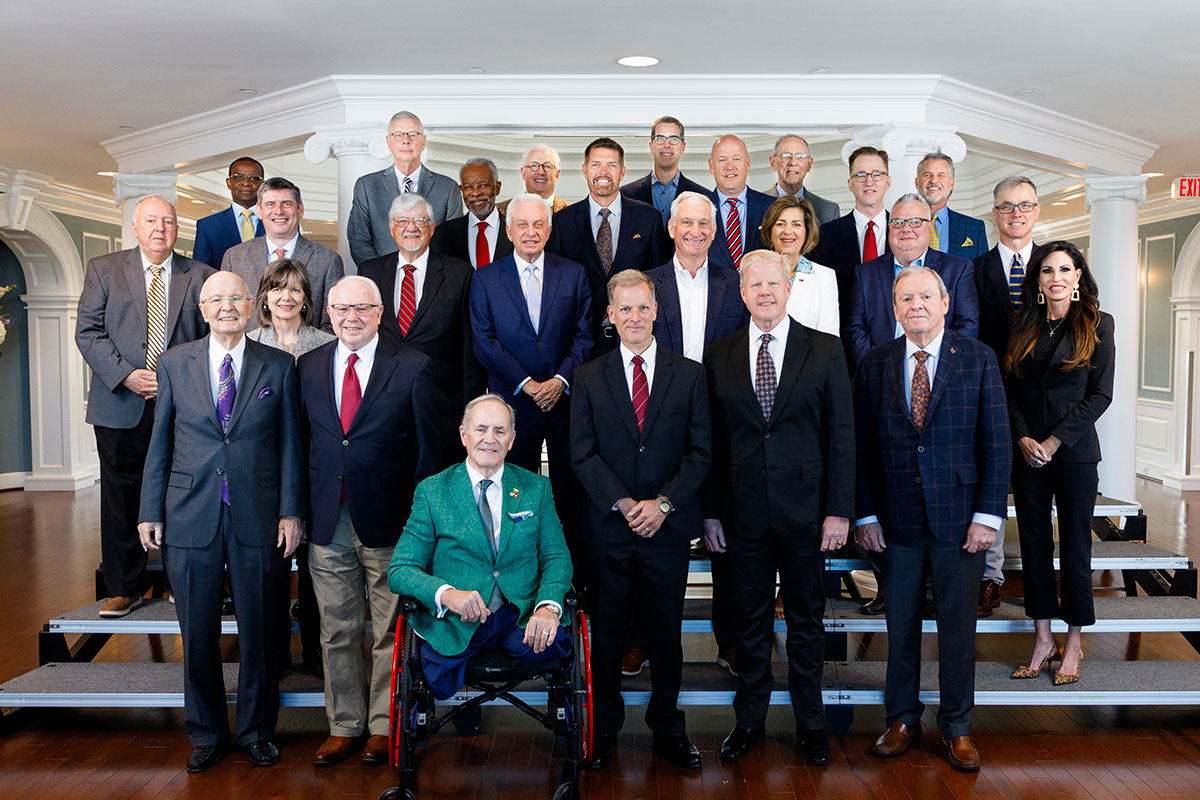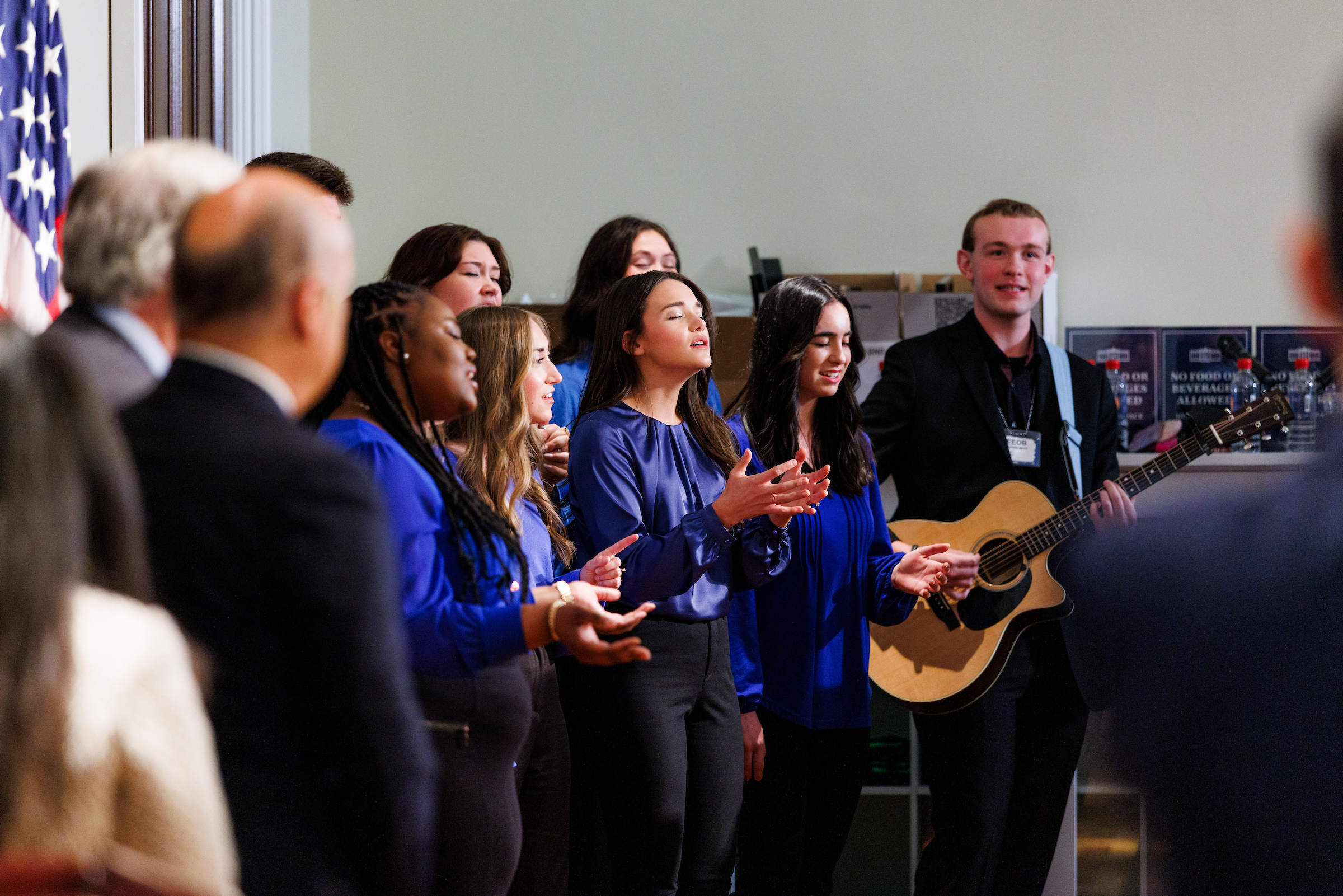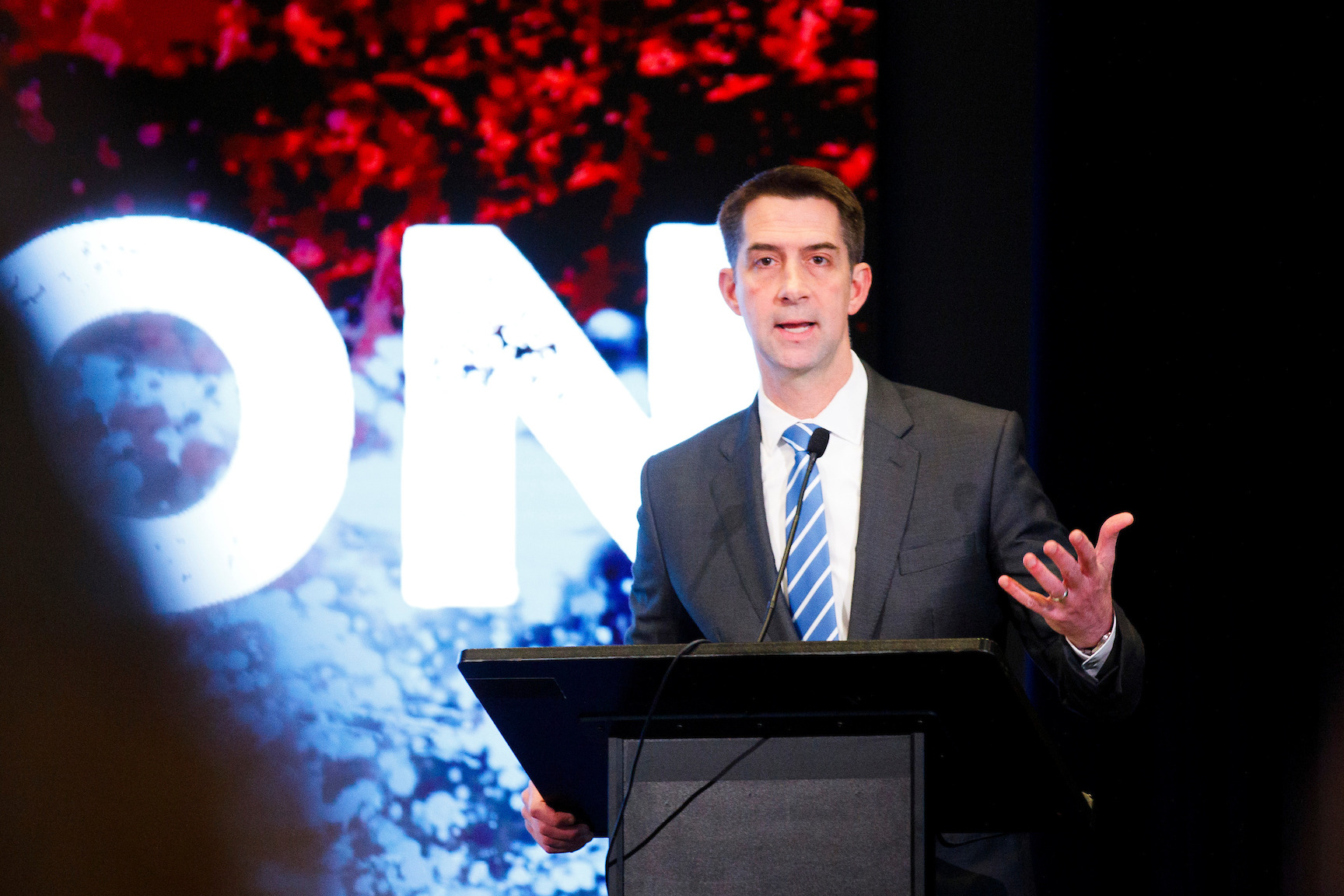Search News Archives
Filter News Articles
Additional Navigation
Liberty University law, forensic science students collaborate for mock trial
April 23, 2025 : By Logan Smith - Office of Communications & Public Engagement
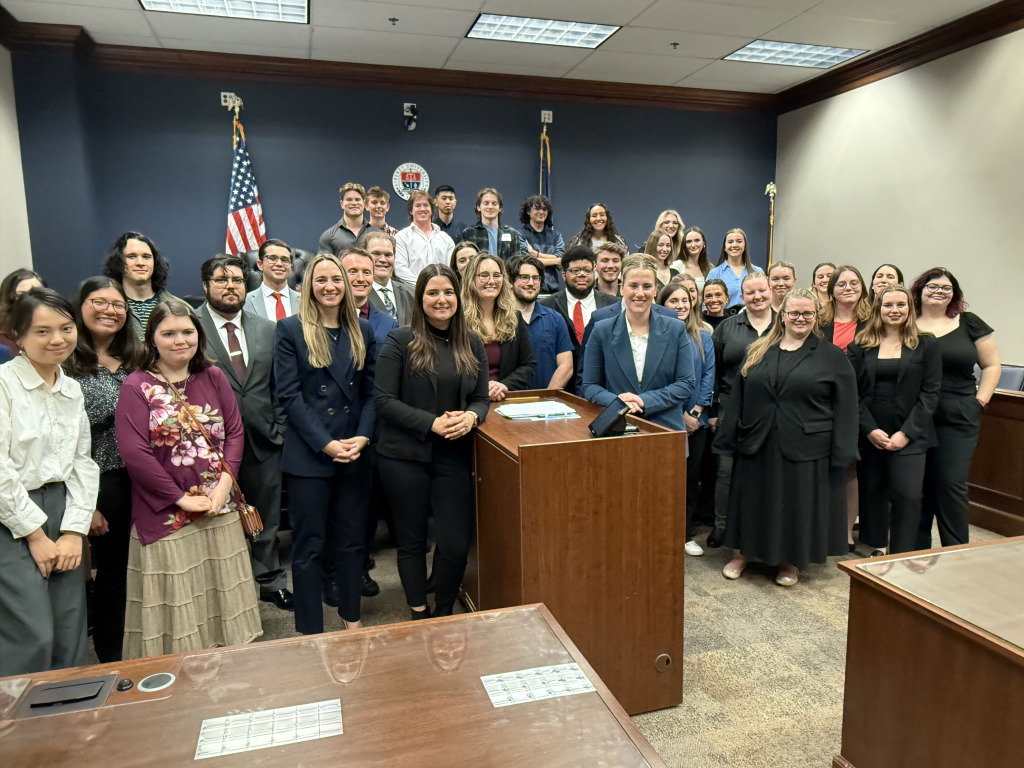
Liberty University forensic science undergraduates and 3Ls from the School of Law recently joined for the annual mock trial, a cross-disciplinary event held March 29 and 30 in a School of Law courtroom. Eleven law students practiced prosecution and defense while 23 forensic science students practiced communicating and presenting forensic DNA analysis in a court setting.
Associate Professor of Law Phillip Kline and forensic science program director and Professor of Biology Dr. J. Thomas McClintock headed the event. This is the seventh year the programs have collaborated on the mock trial.
The simulated case centered around an assault on a young disabled child, with a close family member being the accused party.
McClintock said the participating students will most likely be called to testify to their forensic evidence inside a courtroom at some point in their careers.
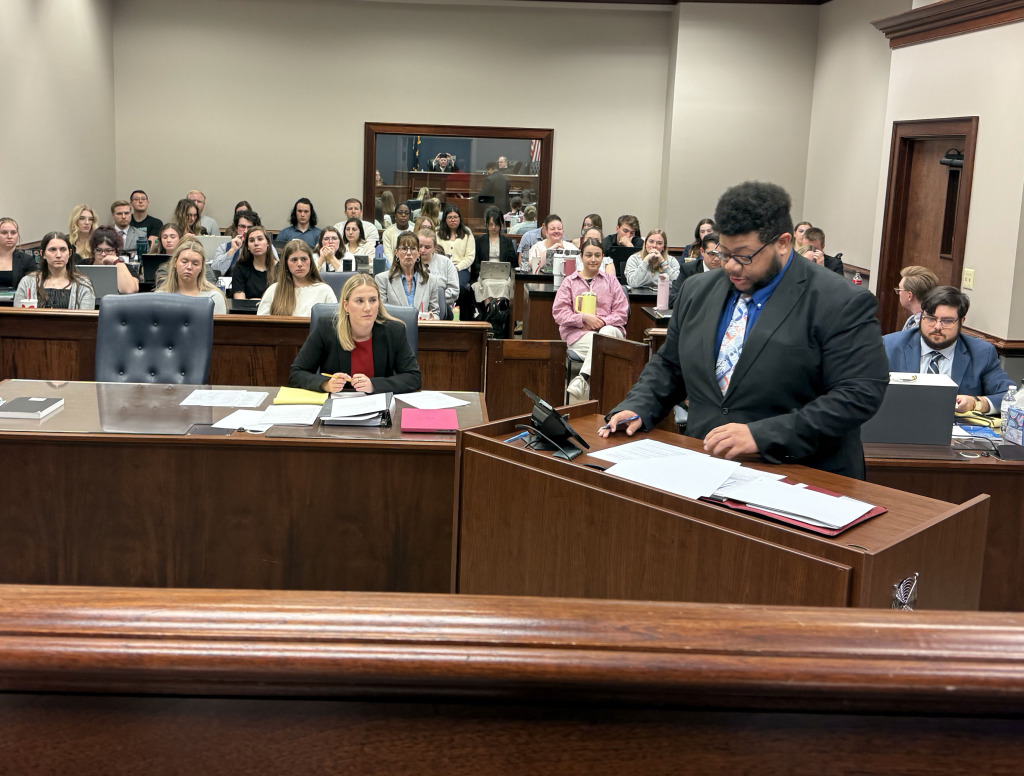 “The students really enjoy it, because they get to apply what they’ve learned instead of waiting until they are older,” he said. “Even if these students don’t pick forensic DNA analysis as a career, there’s a good chance that they will have to testify to their data, and (the mock trial) gives them real-world experience before they get out there and look for a position or career.”
“The students really enjoy it, because they get to apply what they’ve learned instead of waiting until they are older,” he said. “Even if these students don’t pick forensic DNA analysis as a career, there’s a good chance that they will have to testify to their data, and (the mock trial) gives them real-world experience before they get out there and look for a position or career.”
McClintock is one of the nation’s leading DNA experts. In 2013, he was named among the top 15 DNA analysts in the country by ForensicColleges.com. He teaches undergraduate classes in forensic science and microbiology and a graduate-level course in microbial pathogenesis. He is the founder of DNA Diagnostics, Inc., which has provided services for nearly 500 cases in 20 states, three Canadian territories, and three European countries. McClintock has provided expertise in high-profile investigations, including the 2008 case of missing Florida toddler Caylee Anthony and the 1985 murders of the parents of University of Virginia student Elizabeth Haysom in Bedford County, which became a Netflix crime series last year.
Liberty’s forensic science program is one of 30 institutions in the country accredited through the Forensic Science Education Programs Accreditation Commission (FEPAC), part of the American Academy of Forensic Science.
Kline said every trade, profession, and human relationship involves law to some extent, and that made the mock trial event a valuable experience for the law students.
“The practice of law is inherently cross-disciplinary,” he said. “And so, to learn, with integrity, seek out and understand another’s life and profession is a skill critical to the effective practice of law. This event put (law students) in that environment where they have to learn those skills. It’s something that is best to learn through experience rather than the classroom.”
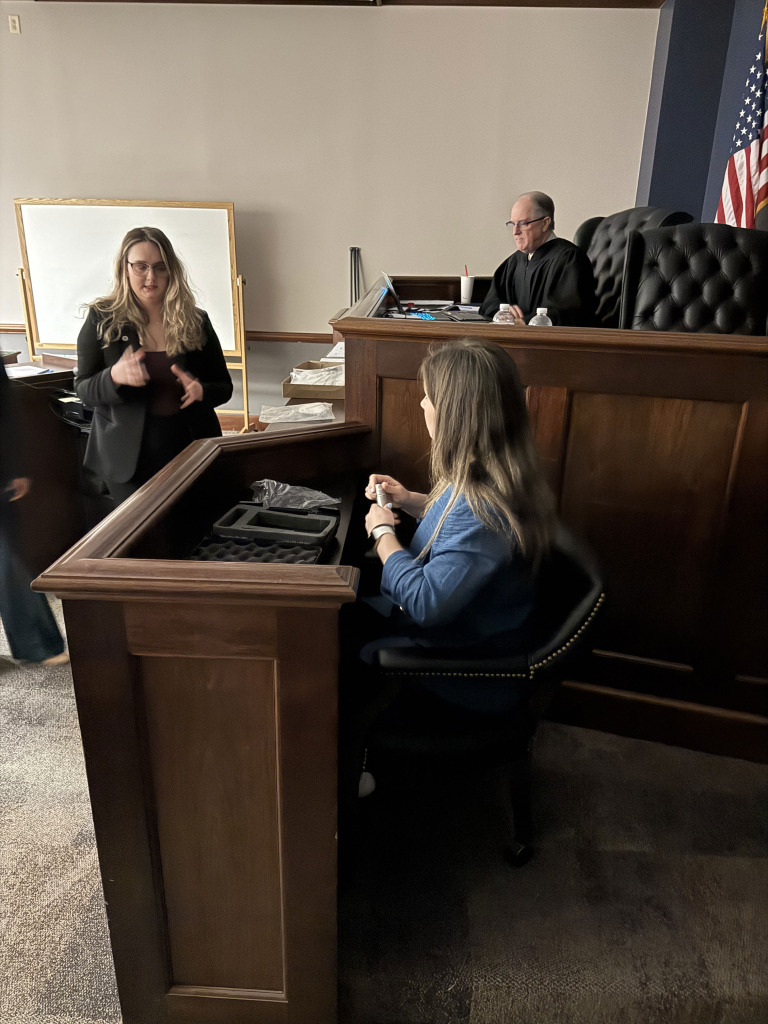
“Cases in real life aren’t handed to you in a nice neat package where everything is defined. Rather, cases come to you in bits and pieces of evidentiary information. Trials are dynamic in nature — not static. And this experience is dynamic,” he added.
Kline joined the School of Law in the spring of 2009. Before teaching at Liberty, he served in Kansas as the Johnson County District Attorney where he managed over 8,500 criminal cases each year. Kline also served as Kansas Attorney General and has successfully argued before the U.S. Supreme Court.
For law student Mollie McCune, the mock trial brought many challenges but was a tremendous hands-on opportunity to apply classroom work in a courtroom.
“Overall, the experience was educational, but it was a lot of work,” she said. “It means so much because it shows that the law school and our professors are working to prepare us to be the best in our field as Champions for Christ. After the trial was over, Professor Kline congratulated us on a job well done and told us that we could have tried this case in court and would have done a great job.”
